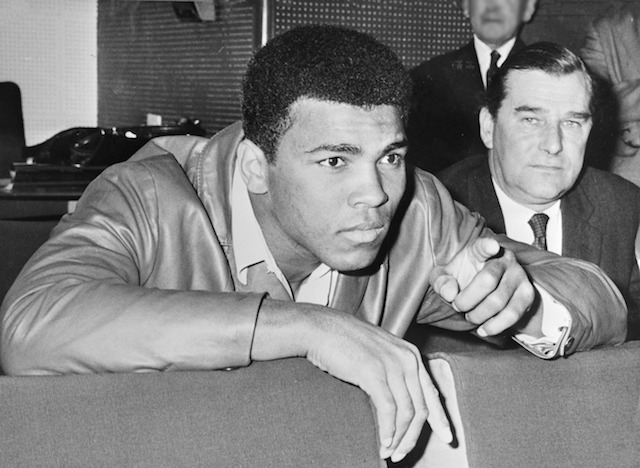
My recommendation for this year’s Black History Month is to watch the movie One Night in Miami streaming on Amazon Prime.
The flick is the fictional retelling of the Feb. 25, 1964 night in Miami, when 22-year-old Cassius Clay upset all odds and beat Sonny Liston to win the world heavyweight boxing championship. The bulk of the movie centers on the celebration he has with his good friends Malcolm X, football legend Jim Brown and singer/songwriter Sam Cooke.
At the time, Clay was known to much of America as a brash big mouth, who knew how to sell tickets, and Malcom X and the Black Muslims were vilified, particularly after X’s comments after John F. Kennedy was assassinated that “the chickens have come home to roost.” The two were close friends and the day after the fight Clay came out first as Cassius X and later as Muhammad Ali.
Also at the time, Brown, who did the color commentary at the fight, was the NFL’s biggest superstar as a running back for the Cleveland Browns and about to embark on a movie career. Cooke, who grew up in Chicago on gospel music, was one of the top-selling recording crossover artists – and is well-worth seeing on YouTube if you’ve never seen him or heard his music. He was also a good friend of Clay and was at the fight the night he won the championship.
It is documented the four men celebrated Clay’s win together in a room at an all-black motel (for this was during the days of Jim Crow), but what is fictionalized was what was said. While entertaining, this is a character study of four fully realized famous Black men joking around – as men do – on the brink of the transformational Civil Rights era of the 1960s.
Everybody who watches the movie will have their own favorite takeaways, but here was one of mine. The argument between X and Cooke. X felt that Cooke was selling out to whites with his music while he should be giving his talent to the Black-American cause sweeping the nation.
Cooke argued that he controlled the rights to his music, and noted that the British [music] invasion at the time (The Beatles, Rolling Stones, etc) recorded and made hits of a number of songs on the Black Charts at the time that went to No. 1 on the pop charts. These royalties went back to the Black artists who wrote and first published the songs, Cooke argues.
X countered by playing a Bob Dylan record with Dylan’s version of Blowing in the Wind, the first lyric being, “How many roads must a man walk down before you can call him a man?” Cook’s song, A Change is Gonna Come (actually recorded before this fictional movie) was heavily influenced by Dylan. It is nice to see the credit given to Dylan for his influence on Black artists at the time as well as to acknowledge how much the British invasion copied American Black music.
I’ve often sat in editorial meetings about what should be covered during African-American History Month, and often the ideas that come from these meeting is to cover some up-and-coming Black elected or Black-owned business. While this is always well and good, watching A Night in Miami is a good window into why African-American History Month remains relevant to our times.
















